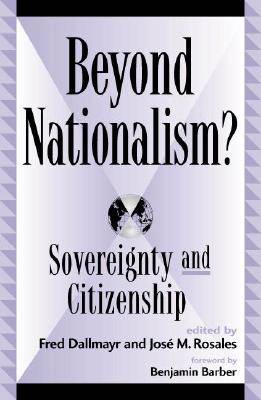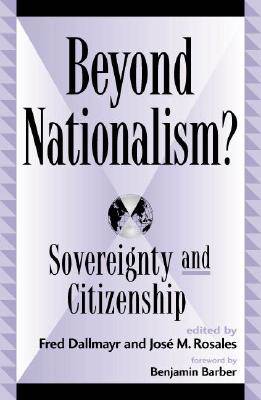
- Afhalen na 1 uur in een winkel met voorraad
- Gratis thuislevering in België vanaf € 30
- Ruim aanbod met 7 miljoen producten
- Afhalen na 1 uur in een winkel met voorraad
- Gratis thuislevering in België vanaf € 30
- Ruim aanbod met 7 miljoen producten
Zoeken
Beyond Nationalism?
Sovereignty and Citizenship
€ 93,45
+ 186 punten
Omschrijving
Bringing fresh insight to an important contemporary debate, Fred Dallmayr and José M. Rosales consider the changing definition of nationalism and the nation-state in our era of globalization. The question mark in the title of this volume points to the multiple issues at stake: what is the meaning of nationalism? Is there only one or possibly multiple types of nationalism? What does it mean to be "beyond" nationalism? Can one safely abandon nationalism and the nation-state? The contributors address these and other concerns, not only through the lenses of institutional and comparative social scientific analysis, but also with an eye toward the "existential" implications for people living in our time: their well-being, legal safety and protection, and sense of identity. Dallmayr and Rosales have structured the book in three parts, leading from theoretical revisions of nationalist theory to contrasting views on globalization and sovereignty to the concluding discussion of human rights. Beyond Nationalism? thus explores some of the most urgent contemporary civic and political challenges raised by a post-national and cosmopolitan reconfiguration of the world order.
Specificaties
Betrokkenen
- Uitgeverij:
Inhoud
- Aantal bladzijden:
- 336
- Taal:
- Engels
- Reeks:
Eigenschappen
- Productcode (EAN):
- 9780739102251
- Verschijningsdatum:
- 17/07/2001
- Uitvoering:
- Paperback
- Formaat:
- Trade paperback (VS)
- Afmetingen:
- 151 mm x 231 mm
- Gewicht:
- 439 g

Alleen bij Standaard Boekhandel
+ 186 punten op je klantenkaart van Standaard Boekhandel
Beoordelingen
We publiceren alleen reviews die voldoen aan de voorwaarden voor reviews. Bekijk onze voorwaarden voor reviews.







